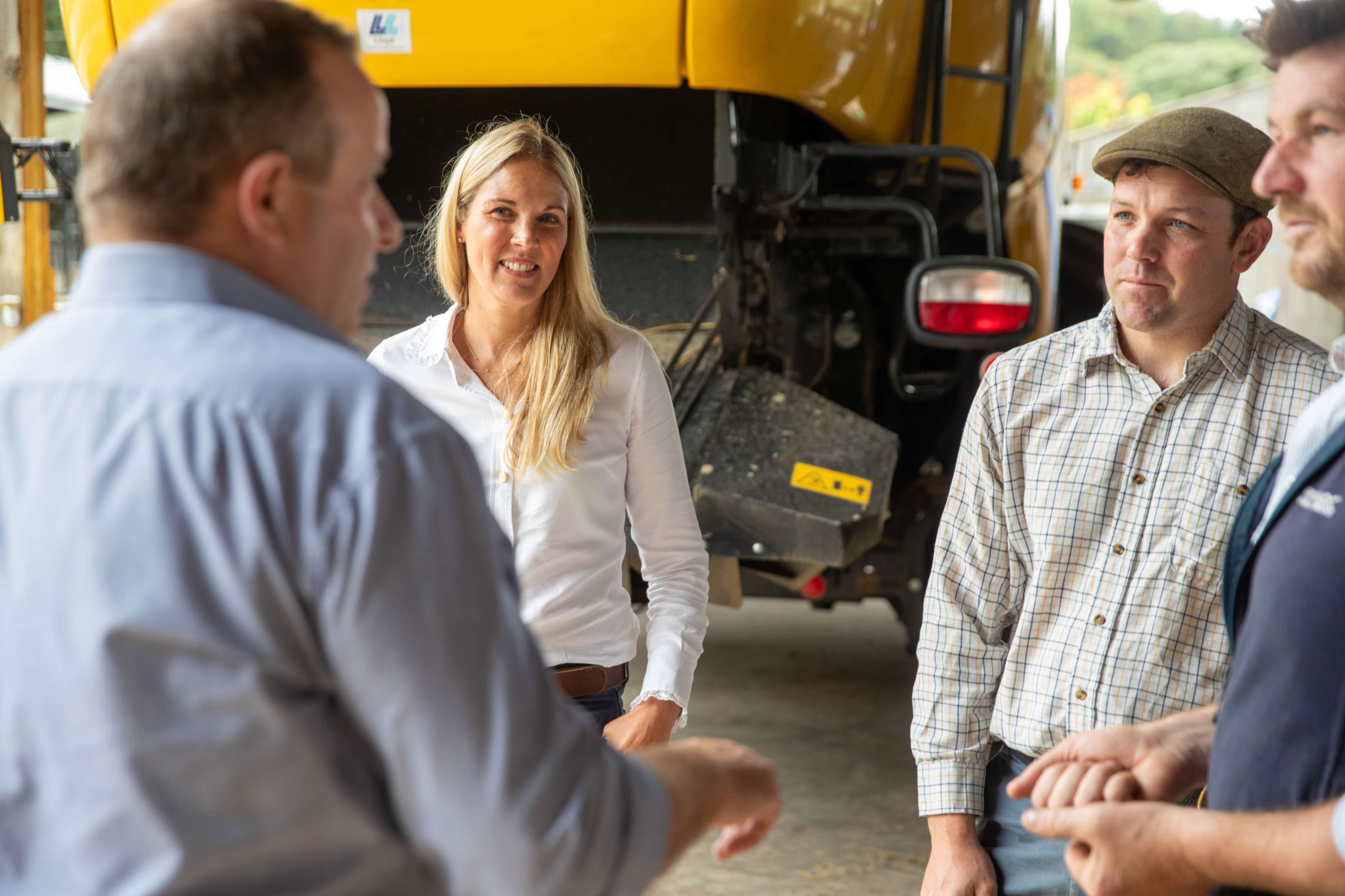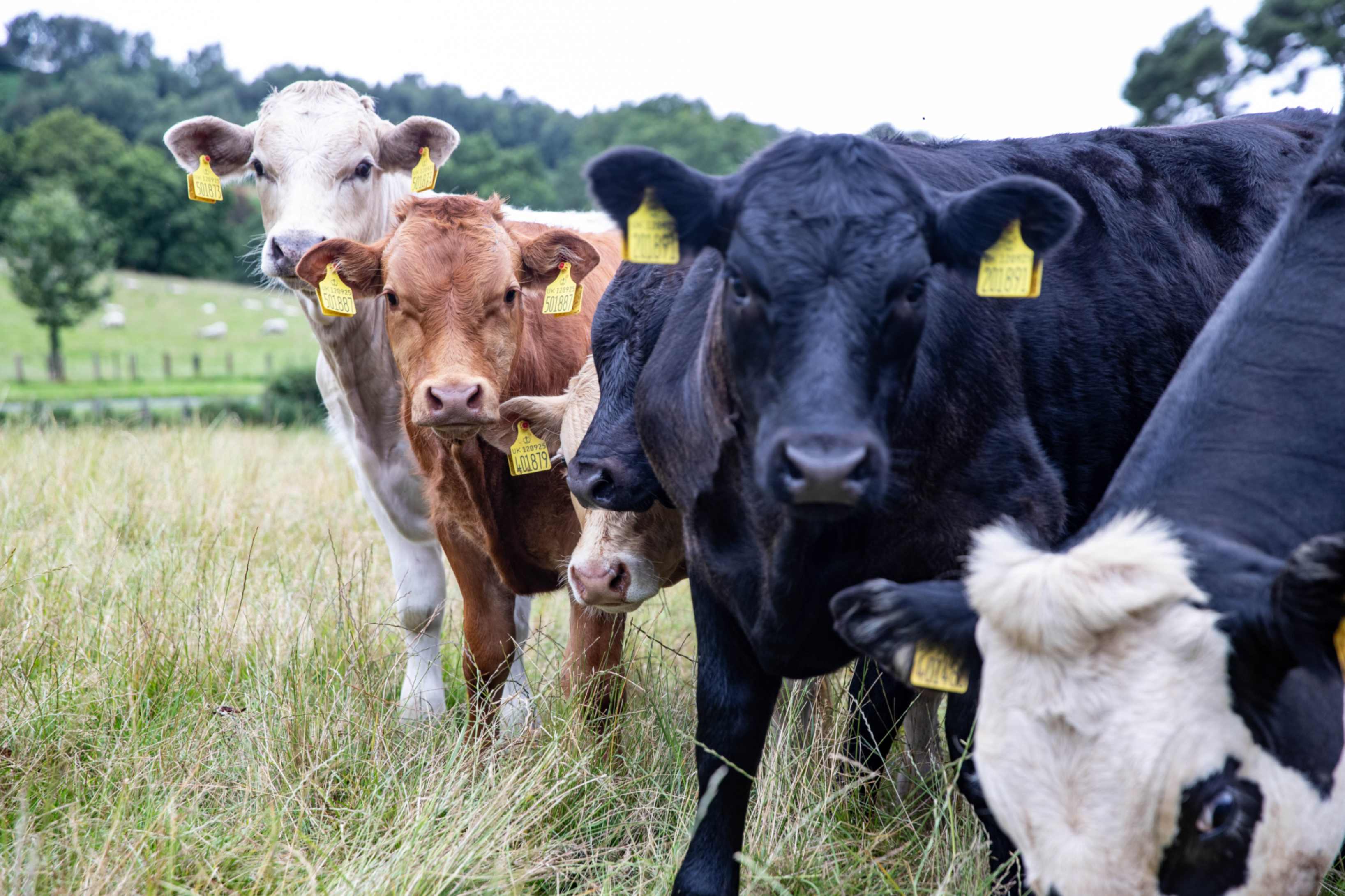Farming and rural grants - what's available
Henry Clemons & Sally Britton from our Agri-Business team share how making the best use of grants to support profitable and nature-friendly agricultural businesses needn't be confusing
3 minutes to read
The first thing we should say about the wide range of grants and environmental payments now available to support farming and rural businesses is that they may not be around forever.
So far, the new Labour government has not committed to maintaining the budget of the Department for the Environment, Food and Rural Affairs (DEFRA) at its current level.
In fact, it seems likely that DEFRA’s budget will be cut as part of government cost-cutting to fill the £22 billion funding gap it says it has inherited from the previous administration.
Our advice would be to take advantage of the support you can claim now, rather than waiting to see if anything better lies over the horizon.

Henry and Sally onsite with their client whose business has recently increased the number of grants it's receiving.
Capital grants
There are two types of support available for rural businesses.
One-off capital grants are used to fund a host of defined objectives, such as habitat creation, introducing more nature-friendly farming methods, better slurry management, improving animal welfare, research, boosting productivity, greater collaboration and tree planting.
Generally, whatever your objectives, there will be a grant that can help. The sums available can be generous, but the application process can be time-consuming and require much planning and information.
Many schemes are competitive and application windows are often open for only short periods. Also, grants may only cover part of the capital costs of a project or new equipment purchase, with the applicant paying the balance.
Ongoing payments
Annual environmental payments, like the Sustainable Farming Incentive (SFI) and Countryside Stewardship (CS) , compensate farmers for delivering specific nature-friendly actions that generally involve taking land out of production or farming in a less intensive way.
SFI is universally available (for now) and pays a flat rate per action – each of which generally lasts for three years - of which the SFI offers over 100. A lot of the actions are not onerous, and most businesses should be able to incorporate a number into their farming operations without too much upheaval.
Some schemes, such as higher-tier CS and Landscape Recovery will provide a mix of capital and ongoing payments.
Mix and match
When working with clients, rather than just targeting specific grant payments or schemes, we will help determine their objectives and carefully select the best mix of options to help deliver them.
One client, for example, had bought a small farm and wanted to create a rewilding project. Working together it was determined that the main aim was to produce food in an ethical and sustainable manner, alongside improving and restoring the environment.

Increasing numbers of environmental grants does not mean a business needs to stop food production.
We designed a CS agreement that generated total revenue for the client of £250,000 over 10 years, capital grants of £260,000 and, in addition, a minimum SFI income of £10,000 per year.
Sustainable businesses
A final piece of advice for any business is to look at grant-funding opportunities for the right reasons. In our view, grants are unlikely to rescue or prop up businesses that are inherently, for whatever reason, unsustainable.
They should be used as part of a long-term strategy to create sustainable businesses that deliver for people, the planet and prosperity.
Please reach out to Sally and Henry to chat more about your farming business.
To read more advice from our Agri-Business team, download or request a printed copy of The Rural Report below.
Access full report